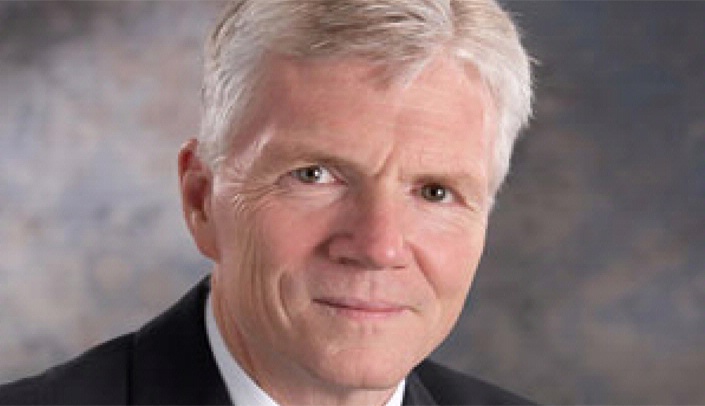This article is the first in a series spotlighting UNMC's economic impact throughout the state of Nebraska.
Roger Wells knows all too well the impact UNMC has on the state. Both his family and his community have benefited from UNMC’s outreach programs in rural Nebraska.
A physician assistant in St. Paul, Neb., Wells, 60, has been working in St. Paul since he graduated from UNMC’s PA program in 1987.
“It’s estimated that about 45 percent of health care providers in rural Nebraska are planning to retire in the next 10 years,” Wells said. “That’s a real problem, because even if you bring in additional nurse practitioners and physician assistants, you’ll never reach the established levels required to optimally meet the needs of rural Nebraska.”
Two UNMC programs – the Rural Health Opportunities Program and the Health Science Education Complex at the University of Nebraska at Kearney – are geared toward addressing this problem.
Wells applauds UNMC for initiating these programs. Two of his children went through RHOP and are now working in Omaha – one as a PA in Nebraska Medicine’s inpatient pain management program, the other as an internal medicine fellow at UNMC. A third child is working at Creighton University as a dietitian in the ICU and is a student in UNMC’s Creighton’s master’s program in dietetics.
Over the years, Wells estimates that he has directed between 15-20 rural Nebraska students into the RHOP program.
With the opening of the Health Science Education Complex at UNK this fall, Wells said it will create additional opportunities for rural students to pursue health careers in nursing and the allied health professions.
“UNMC’s collaboration with UNK on the new health complex will open doors for rural students and have an impact that will be felt for generations to come,” he said.
It’s estimated that UNMC graduates working throughout Nebraska generate an economic impact of $3.9 billion. The impact by profession breaks down like this:
- physicians have a $2.7 billion impact or $1.3 million per graduate;
- dentists ($534 million total/$750,000 per grad);
- pharmacists ($339.9 million/$300,000 per grad);
- advanced practice registered nurses ($147 million/$250,000 per grad);
- physician assistants ($134.7 million/$250,000 per grad); and
- physical therapists ($111.4 million/$200,000 per grad).
With all the new health care careers that will be spawned through RHOP and the Health Science Education Complex, Wells said it’s easy to see how millions of dollars of economic growth will be infused in the state.
_________________________________________________________
More on RHOP and the Health Science Education Complex
Started in 1990, the Rural Health Opportunities Program (RHOP) is designed to address the special needs of rural Nebraska by encouraging rural residents to pursue a career in the health care fields. Students selected are guaranteed admission to UNMC as long as all stated requirements are met and the pre-professional studies at Chadron State College, Wayne State College or Peru State College are completed.
As of the end of 2014, 468 students have graduated from UNMC through the RHOP program.
The Health Science Education Complex – ready in fall 2015 – is a partnership between the UNMC College of Nursing, UNMC School of Allied Health Professions and the University of Nebraska at Kearney to expand and deliver health profession education at UNK.
The Health Science Education Complex will be a learning and research environment that:
- promotes interprofessional education in rural primary care;
- generates new scientific knowledge about rural health; and
- advances health and health care in rural communities through academic and community partnerships.
Through world-class research and patient care, UNMC generates breakthroughs that make life better for people throughout Nebraska and beyond. Its education programs train more health professionals than any other institution in the state. Learn more at unmc.edu and follow us on social media.
UNMC | Facebook | Twitter | YouTube | Flickr
